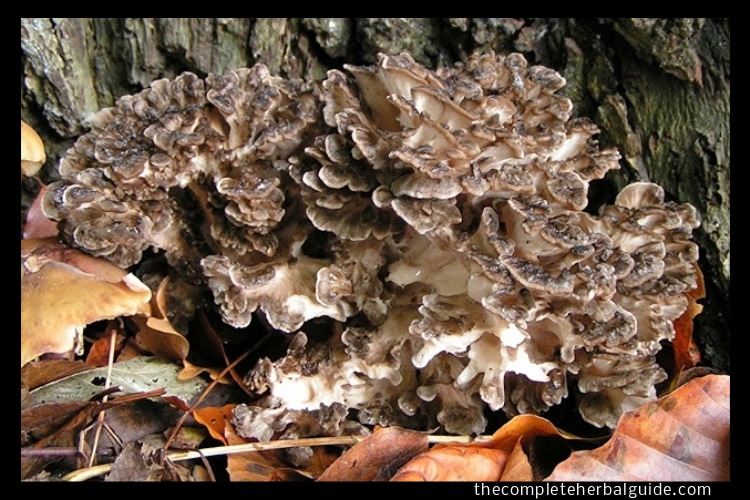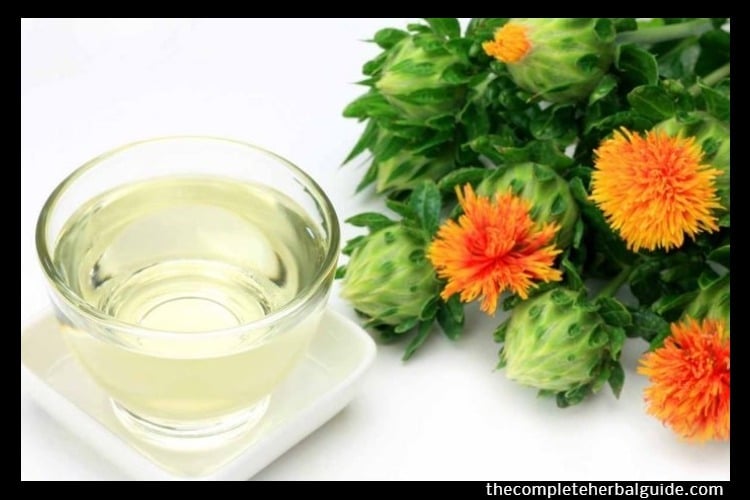
Top 25 Healing Herbs
Table of Contents
Nature’s medicine
There are times when it might be smarter to use an herbal remedy than a pharmaceutical. For example, sometimes a herb offers a safer alternative. Take chamomile: The flowers have been used for centuries as a gentle calmative for young and old alike. It’s non-habit-forming and well tolerated, and a study sponsored by the University of Michigan found that chamomile extract had roughly the same efficacy as many prescription sleeping medications when given to adults with insomnia. Likewise, peppermint oil has been shown to be as effective as pharmaceutical drugs for relieving irritable bowel syndrome, but without the ofttimes dangerous side effects. And clinical studies have shown that ginger relieves morning sickness, sage can relieve a sore throat, and hibiscus tea gently lowers blood pressure.
I believe it’s better to use mild remedies for minor health problems and save the more potent—and risky—prescription medications for more serious conditions. Here then, are my top 25 favorite healing herbs and their uses. All are safe and effective, but be sure to discuss any herbs you are taking with your doctor. Some herbal remedies (such as the antidepressant St. John’s wort) can interact with medications.
Ashwagandha

Uses: Rejuvenating tonic, anti-inflammatory, reduces anxiety, boosts immune health
Preparation and doses:
Tea: Simmer 1 tsp dried and sliced root in 1 cup water or milk for 10 minutes. Strain. Drink 1 or 2 times per day.
Standardized Extract (2–5% withanolides): Take 500 mg 2 or 3 times per day.
Concerns: Can cause milk sedation; potential to stimulate thyroid hormones
Black Cohosh
Uses: Relieves menstrual cramps and arthritic pain; commonly used to ease menopausal symptoms
Preparation and doses:
Tincture: Take 1–2 ml 3 times per day.
Standardized extract: Take 20–80 mg 2 times per day.
Concerns: Very rare case reports of liver damage (likely due to misidentified herb); purchase only from a reputable supplier
Calendula

Uses: Calendula has long been used to relieve inflammation of the mouth, throat, and stomach; popular as a topical cream or ointment to relieve rashes and irritation and to help heal wounds.
Preparation and doses:
Tea: Pour 1 cup boiling water over 2 tsp petals. Steep for 10 minutes. Strain. Use as needed as a mouthwash, gargle, or tea.
Ointment: Apply to skin 2 or 3 times per day as needed.
Concerns: None are known
Catnip
Uses: Soothes an upset stomach; reduced anxiety and tension
Preparation and doses:
Tea: Pour 1 cup boiling water over 4 or 5 fresh or 1 tsp dried leaves. Steep for 5 minutes. Strain and sweeten, if desired. Drink 1 or 2 times per day.
Concerns: None are known
Chasteberry
Uses: Premiere herb for relieving PMS symptoms
Preparation and doses:
Capsules: Take 250–500 mg dried fruit once per day.
Tincture: Take 2–3 ml each morning.
Concerns: None are known
Cranberry

Uses: Well-established treatment for reducing the risk of bladder infection; could also be beneficial for chronic prostatitis
Preparation and doses:
Juice: Drink ½-¾ cup twice per day.
Capsules: Take 300–500 mg of concentrated juice extract 2 times per day.
Concerns: None are known
Echinacea

Uses: Antiviral and immune-enhancing properties; popular for relieving colds and upper respiratory infections (approved in Europe for these uses)
Preparation and doses:
Tea: Simmer 1 tsp dried and sliced root in 1 cup water for 10 minutes. Strain. Drink 1-3 cups per day.
Tincture: Take 5 ml 3-6 times per day at the onset of cold symptoms.
Concerns: Rare allergic reactions
Elderberry
Uses: Elderberry flowers have been valued as a remedy for colds and fever for centuries; fruit extracts have been shown to have significant antiviral activity, especially against the flu.
Preparation and doses:
Tea: Pour 1 cup boiling water over 1–2 tsp flowers. Steep for 10 minutes. Sweeten if desired and drink hot 2-3 times per day.
Berry extracts: Use as directed.
Concerns: None are known
Garlic

Uses: Potent antimicrobial; often used to combat colds, ease sinus congestion, and stave off traveler’s diarrhea. Studies show that regular use can help gently lower blood pressure.
Preparation and doses:
Eat: Eat 1–2 cloves fresh daily.
Capsules: Take 4–8 mg allicin per day; enteric-coated products may be superior if specifically treating diarrhea.
Concerns: May interact with warfarin
Ginger

Use: Premiere remedy for easing nausea, vomiting, and upset stomach; fresh teas relieve cold and flu symptoms.
Preparation and doses:
Tea: Steep ¼–½ tsp dried ginger or simmer 1 tsp fresh ginger root in 1 cup hot water for 10 minutes. Strain and sweeten, if desired. Drink 1–2 cups per day.
Capsules: Take 250–500 mg 2 times per day.
Concerns: Very safe in small amounts; heartburn and stomach upset can occur with high doses. Pregnant women should not take more than 1,500 mg per day of dried ginger.
Ginseng
Uses: Helps relieve and prevent mental and physical fatigue; shown to reduce the frequency and severity of colds; possibly beneficial for erectile dysfunction
Preparation and doses:
Tea: Simmer 1 tsp dried and sliced root in 1 cup water for 10 minutes. Strain. Drink 1–2 cups per day.
Standardized Extract (4–7% ginsenosides): 100–400 mg per day
Concerns: Purchase from a reputable manufacturer, as ginseng has often been adulterated in the past.
Hibiscus
Uses: Lowers blood pressure and has mild diuretic activity; traditionally used to ease sore throats and colds
Preparation and doses:
Tea: Pour 1 cup boiling water over 1–2 tsp dried flowers. Steep for 10 minutes. Strain and sweeten, if desired. Drink 2 cups per day.
Capsules: Take 1,000 mg 2 times per day.
Concerns: Talk to your health-care provider if you have high blood pressure.
Hops
Uses: Excellent sleeping aid; smaller, daytime doses used to ease tension, restlessness, and anxiety; might help reduce hot flashes during menopause
Preparation and doses:
Capsules: Take 200–300 mg 1-3 times per day.
Tincture: Take 2–4 ml before bed.
Concerns: Can cause sedation
Horse Chestnut
Uses: Seed extracts shown to be highly effective for the treatment of varicose veins and chronic venous insufficiency (blood pools in lower leg veins after standing or sitting); topical gels can reduce swelling and tenderness due to injury.
Preparation and doses:
Seed extract (containing 100–150 mg aescin/escin): Take 600 mg per day in divided doses.
Concerns: Unprocessed horse chestnut seeds can be toxic; use only appropriately prepared seed extracts.
Kava

Uses: Clinical trials have shown kava to be highly effective for relieving anxiety. Also has significant muscle-relaxing effects.
Preparation and doses:
Tea: Simmer 1 tsp dried and sliced root in 1 cup water for 10 minutes. Strain. Drink 1–2 cups per day.
Extract of root: Take 100–200 mg 2 or 3 times per day. (Do not exceed 210 mg per day of kavalactones.)
Concerns: Rare cases of liver toxicity; do not use if you have liver disease, frequently drink alcohol, or are taking acetaminophen or prescription medications.
Lemon Balm

Uses: Gentle calmative; eases tension, digestive upset, and colic; topical creams used for fever blisters
Preparation and doses:
Tea: Pour 1 cup boiling water over 5 or 6 fresh or 1 tsp dried leaves. Steep for 5 minutes. Strain and sweeten, if desired. Drink several times per day.
Concerns: None; suitable for all ages
Licorice

Uses: Excellent anti-inflammatory; soothes mucous membranes; useful for sore throats and coughs; protects and heals gastrointestinal tract
Preparation and doses:
Tea: Simmer 1 tsp dried and sliced root in 1 cup water for 10 minutes. Strain. Drink 2 or 3 times per day for up to 7 days.
Capsules: Take up to 3,000 mg per day for 7 days. Do not exceed 500 mg per day if taking for longer than 7 days.
Concerns: Do not use high doses for longer than 1 week as it elevates blood pressure and causes potassium loss. (DGL, a special preparation commonly used for heartburn, is safe for prolonged use.)
Marshmallow

Uses: Root and leaf are rich in mucilage, a substance that coats the lining of the mouth and throat, as well as the tissue that lines the gastrointestinal tract. Used for a sore throat, heartburn, and minor GI inflammation.
Preparation and doses:
Tea: Pour 1 cup hot water over 1 tsp dried and sliced root or 2 tsp leaf. Steep for 2 hours. Strain and drink as desired.
Concerns: Take other drugs 1 hour prior to or several hours after consuming marshmallow, as it could slow absorption of oral medications.
Milk Thistle

Uses: Protects the liver from damage caused by environmental toxins, medications, and alcohol. Recent studies suggest it protects the kidneys similarly.
Preparation and doses:
Extract (guaranteed minimum of 70% silymarin): Take 400–700 mg per day in divided doses.
Concerns: None are known
Mullein
Uses: Leaves commonly used to relieve a cough, sore throat, and chest congestion; steeped in oil, the flowers relieve an earache.
Preparation and doses:
Tea: Pour 1 cup boiling water over 1–2 tsp leaves. Steep for 10 minutes. Strain, sweeten, and drink as desired.
Ear oil: Use as directed.
Concerns: None are known
Nettle
Uses: Fresh, freeze-dried leaves relieving seasonal allergy symptoms in one human trial. Research supports use of the root for easing symptoms of enlarged prostate. Tea widely recommended for its nutritive value.
Preparation and doses:
Tea: Pour 1 cup boiling water over 2 tsp leaves. Steep for 10 minutes. Strain. Sweeten if desired. Drink 1–3 cups per day.
Freeze-dried nettle capsules: Take 300–500 mg 2 times per day.
Nettle root: Take 250–400 mg 2 or 3 times per day.
Concerns: Wear gloves when handling fresh nettles to avoid stinging and irritation (sting is lost with cooking or drying); very safe herb.
Sage

Uses: Excellent for a sore throat, cough, and colds; recognized in Germany as a treatment for excessive sweating; studies show it can help reduce menopausal hot flashes and night sweats.
Preparation and doses:
Tea: Pour 1 cup boiling water over 1 tsp leaves. Steep for 10 minutes. Strain. Drink, or use as a sore throat gargle.
Capsules: Take 500 mg dried leaf 2 times per day.
Concerns: Do not use therapeutic doses during pregnancy; do not use sage essential oil internally.
Slippery Elm
Uses FDA-approved as a safe, nonprescription remedy for minor throat irritation; also very useful for relieving cough and occasional heartburn.
Preparation and doses:
Lozenges: Take as directed.
Tea: Pour 1 cup boiling water over 1–2 tsp powdered bark. Steep for 5 minutes. Drink 2 or 3 times per day.
Concerns: Take other drugs 1 hour before or several hours after consuming, as it could slow absorption of oral medications.
St. John’s Wort
 (Hypericum perforatum)
(Hypericum perforatum)Uses: More than 40 studies have confirmed its effectiveness for relieving mild to moderate depression; may also relieve PMS symptoms and menopausal hot flashes, especially when combined with black cohosh.
Preparation and doses:
Standardized extract (standardized to 0.3% hypericin and/or 3–5% hyperforin): Take 300–600 mg 3 times per day.
Concerns: Talk to your physician or pharmacist before using if you are taking prescription medications; the chance for herb-drug interaction is high.
Thyme

Uses: Highly regarded for relieving coughs, colds, and congestion; rich in volatile oils that have significant antimicrobial and antispasmodic activity
Preparation and doses:
Tea: Pour 1 cup boiling water over 1 Tbsp fresh or 1 tsp dried leaves. Steep for 10 minutes. Strain and sweeten, if desired. Drink ⅓ cup 3 times per day.
Concerns: None are nown








